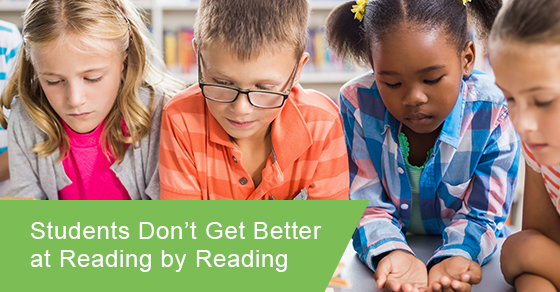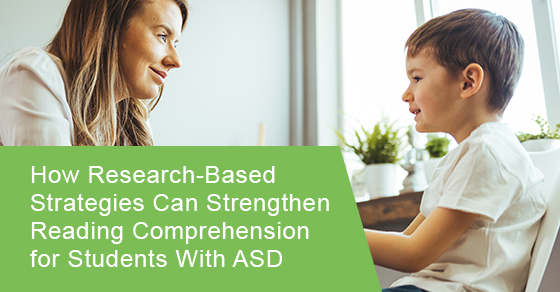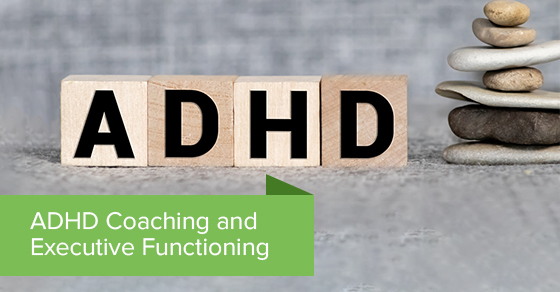Reading is necessary for many aspects of learning, and initial difficulties can increase over time and impede a student’s ability to access the curriculum in other subjects. Students with reading disabilities often underachieve academically. When a student expresses frustration or difficulty with reading, or avoids the task, it is often a sign of a deficit that requires intervention. When students have trouble learning to read, it can affect their confidence in their academic abilities and self-esteem, and lead to significant mental health concerns. When a student does not develop a strong foundation in word reading, it can set them up for further academic struggles. Reading is not natural, it is a skill that must be taught, and a reading disability has nothing to do with intelligence. Unfortunately, simply reading more often is not enough to improve these skills.
Students don’t get better at reading just by reading because there are many underlying skills required. These include phonemic awareness, fluency, vocabulary, and comprehension. If a student is deficient in any of these areas, simply reading more will not necessarily improve their overall reading ability. In fact, it may just make them feel frustrated and overwhelmed. It’s like trying to bake a cake when you are missing half the ingredients.
Some students rely on memory or prediction to hide their learning disability. This tactic is referred to as “compensating.” Compensating is a phenomenon that occurs when a child is learning to read and encounters difficulty with certain words or sounds. To continue reading and try to make sense of the text, the child will use strategies such as guessing, skipping over words, retrieving whole words or phrases, or using context clues to try to figure out the meaning of the text. While this may enable the child to continue reading in the short term, it can become a hindrance to their overall reading ability as they rely too heavily on compensating strategies and cannot focus on expanding their comprehension or vocabulary.
Linda Siegel, a professor emerita of educational and counselling psychology and special education at the University of British Columbia, has identified compensating as a key issue in reading difficulties. In her research, she has found that compensating strategies can limit a child’s progress in reading and may lead to ongoing reading difficulties.
As Siegel notes, “If the goal is simply to get through a text, [compensating] works. But if the goal is to comprehend the text and develop a wide vocabulary and strong reading skills, these strategies can be a problem. Children need to be taught to decode and sound out words accurately and fluently.” The science clearly shows that early intervention and effective instruction are needed to ensure that children develop the foundational skills needed to become proficient readers.
Breaking Down the Skills We Need for Reading
Phonemic awareness is the ability to recognize and manipulate individual sounds in words. This skill is essential for decoding words and is often a challenge for students with dyslexia. Students with dyslexia may have difficulty distinguishing between similar sounds, such as “b” and “d,” or may struggle to blend sounds together to form words. Reading more frequently will not necessarily improve phonemic awareness skills.
Fluency is another important skill for reading. This refers to the ability to read quickly and accurately with expression. Students who lack fluency may struggle to comprehend what they are reading because they are spending so much mental energy on decoding individual words. Improving fluency requires targeted practice, such as reading aloud and using reading passages specifically designed to build fluency.
Vocabulary is also a critical aspect of reading. Students who lack vocabulary knowledge may struggle to understand the meaning of words they encounter while reading, making comprehension difficult. While reading can help build vocabulary, it is often not enough on its own. Students need explicit instruction in word meanings and opportunities to use new vocabulary in context.
Finally, comprehension is the goal of reading. This refers to the ability to understand and remember what has been read. However, comprehension is not a single skill, but rather a complex process that involves many different skills, including decoding, fluency, vocabulary, background knowledge, and inference. Students who struggle with comprehension may need targeted instruction in these areas to improve their overall reading ability.
In addition to these underlying skills, there are also many other factors that can sideline reading progress. For example, students who have experienced trauma or who are struggling with anxiety or depression may find it difficult to focus on reading. Students with inadequate exposure to print or who come from homes with limited literacy resources may also struggle with reading. In these cases, increasing the frequency or volume of reading is not enough to address the underlying issues.
Reading Remediation Can Help
So, what can be done to help students improve their reading skills? One approach is reading remediation, which involves targeted instruction in the specific skills that are necessary for reading, using an evidence-based reading program. Remediation can be particularly effective for students with dyslexia or other learning disabilities, who may require more intensive and individualized instruction to make progress.
Ultimately, improving reading skills requires a multifaceted approach that addresses the underlying skills necessary for reading, as well as any unidentified issues that may be obstructing a student’s reading progress. Simply reading more is not enough to address these issues, but targeted instruction and support can help students build the skills and confidence they need to become successful readers.
At Evoke, we use effective research-validated reading intervention approaches based on the science of reading. Evoke’s reading remediation program can make significant improvements through direct instruction and training to correct a student’s deficits and undo inefficient word recognition habits. Using proven instructional principles, Evoke’s intervention approaches directly address word-level reading difficulties, train the skills that promote orthographic mapping (the process students use to become fluent readers), and ensure that the student’s learning transfers to the general application of skills. Student progress is measured using standardized assessments administered by a professional speech-language pathologist to determine the success of the interventions.
Evoke’s reading remediation program is designed to assist students who are challenged by the acquisition of early reading skills or older students with continued reading difficulties. Our curriculum and instruction reflect the scientific research on the best approaches to teach the foundational skills that lead to efficient word reading.
Give us a call to learn more about how we can help you turn the page on reading challenges.



